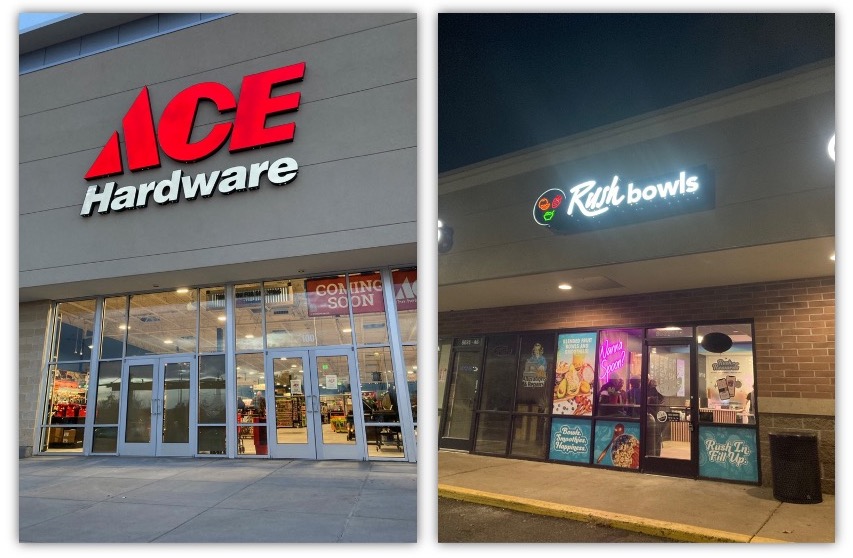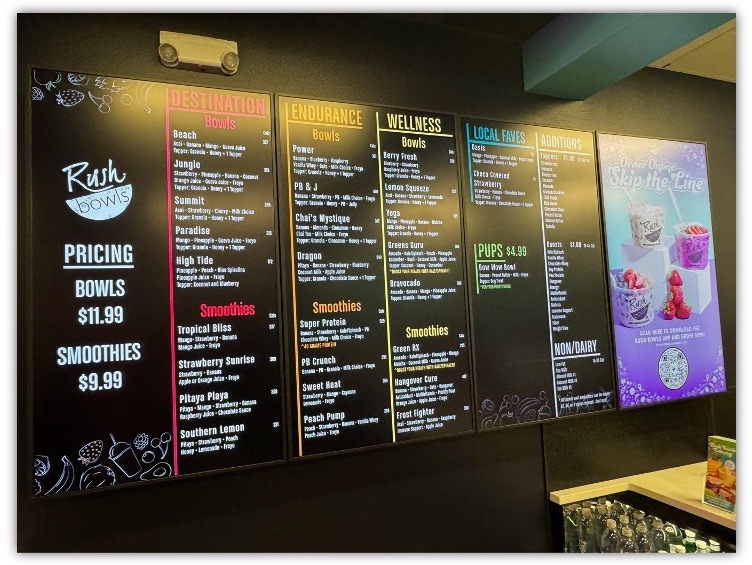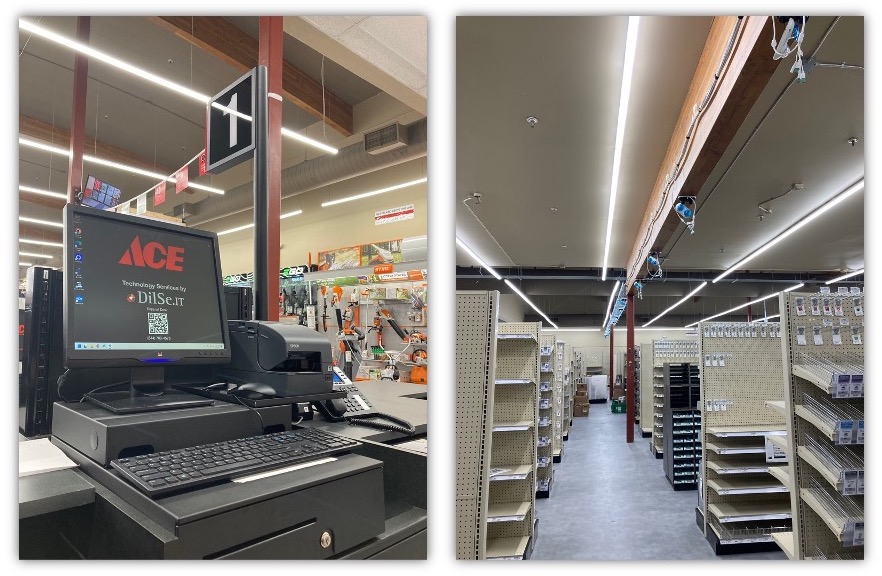How Do You Manage Technology In A Small Business?
December 21, 2023
At DilSe.IT, we take pride in creating innovative processes and technologies that add value for small business owners, managers, and employees.

Small businesses form the backbone of the American economy accounting for 44% of economic activity and 64% of all jobs. For the sake of today’s article, we define small businesses as those with 5 to 500 employees or $1M to $50M in annual revenues.
Managing technology can be a real challenge for small business owners. While computers have been used by small business owners for decades, the reliance on technology for sales and daily operations has significantly accelerated since the pandemic in 2020. How is a small business owner to deal with the increasing criticality and complexity of technology?
Why Managed IT Services?
A concept that has been around for office environments for quite some time is increasingly being embraced by retail and restaurant small business owners: Managed Information Technology (IT) Services. With Managed IT Services you outsource the management of your technology to a third-party company that essentially becomes your IT department.
Large corporations have an in-house IT department staffed by highly-paid professionals. IT departments are typically responsible for the following areas:
- Hardware support for computers, mobile devices, and networking equipment
- Software support and upgrades for point-of-sale, inventory, and customer relationship management systems
- Software support and upgrades for office applications, email/calendar, etc.
- Network installation, monitoring, and maintenance
- Telecommunications and broadband connectivity
- Surveillance and physical security
- Applications and data backup and recovery
- Compliance including the Payment Card Industry (PCI) Data Security Standards
- Training and staff education, and last but definitely not least
- Cyber security

Corporate IT departments can hire highly trained technology professionals and provide them with a career path to keep them engaged and developing their skills and/or management expertise. Typically, small businesses do not have the scale or the resources to provide similar opportunities for technology professionals. While you may be able to hire someone with technology skills, you cannot offer them the breadth of experiences and challenges necessary to keep those skills fresh or provide a long-term career path.
Under a Managed IT Services model, the list of IT department responsibilities is outsourced. The managed services provider can leverage the work required across multiple small businesses to provide the same learning and career development opportunities for technology professionals that corporate IT departments do.
Small business owners are very familiar with outsourcing accounting, bookkeeping and payroll services. This outsourced model works similarly well for technology services.
How Do Managed IT Services Work?
As with a corporate IT department, a Managed IT Services company provides a Support Desk that resolves technology issues for small business users as they arise. Most issues can be resolved remotely. Several strategies are used to minimize the need for on-site support:
- Employing Remote Monitoring and Management (RMM) software that allows the Managed Services Provider (MSP) to remotely connect, control, diagnose, install/uninstall software, and update devices including computers, mobile devices, printers, networking equipment, etc.
- Providing a KVM device and/or network monitoring device to remotely control and diagnose malfunctioning equipment.
- Specifying the client maintain a hot spare for critical equipment for quick replacement and restoration of service.
- The ability to ship malfunctioning equipment that has been replaced with a hot spare to the MSP for diagnosis and repair without impacting the client’s business operations.
- Using the employees at the client and/or local contract technicians as remote hands to address the replacement of components or equipment.
The MSP also takes a long term view of your technology environment by helping you create an annual budget for technology investments. Just like other equipment in your business, technology devices wear-out over time. Technology equipment is also subject to obsolescence since newer versions of operating systems and software often require hardware upgrades. Lastly, the MSP stays abreast of the latest technology advances and helps you decide which new technologies make sense for your business.

Why Is Technology Important?
Point-of-sale and inventory management systems have been moving to cloud-based services and Web-based interfaces for the past 15 years. More powerful mobile technologies have allowed software vendors to move major functionality to handheld devices. Pencil and paper-based approaches to common tasks like taking inventory or completing a purchase order have become obsolete in-favor of processes that rely exclusively on technology.
Since the global pandemic in 2020 kept many people in their homes and closed many small businesses for a period of time, technology usage has dramatically accelerated for both sales and operations at most small businesses. We’re doing things today we didn’t even imagine just 4 years ago:
- Customers are ordering on-line from the parking lot and expecting their orders to be ready for pickup when they walk into the building
- Delivery service drivers are showing-up constantly to retrieve orders for one or multiple customers
- Customers expect everything from a side of sushi, to a bag of top soil, to a riding lawn mower to be delivered to their home – often the same day
- People are waiting in your parking lot and using an app or sending a text message for you to run their order out to their car
- Employees are running around your building with mobile devices to pick orders, confirm pickups and deliveries, and take inventory in real-time
- Customers in your building want to pay by tapping their card or holding their mobile phone close to your credit card PIN pads
- Increasingly, customers are expecting to be checked-out in the aisle or at their table versus waiting in a queue line at point-of-sale
- Customers are expecting to retrieve their rewards points and coupons on their smartphones so you better be providing fast, reliable free wi-fi for them to use
- Computers are using AI technology to suggest items and/or services that your customers might want to add-on to their orders
All of these new things are 100% dependent upon technology. When it doesn’t work you end up with dissatisfied customers, unproductive employees, lost sales, and lost profits.
Your Technology Can’t Be An Afterthought or a Side Job
For many years, small business owners have gotten by patching their technology together in their spare time with Band-aids and duct tape – metaphorically speaking. Or, they’ve relied on some personal past experience with technology or a tech-savvy employee who kept things running part-time.
For many years, small business owners have gotten by patching their technology together in their spare time with Band-aids and duct tape – metaphorically speaking. Or, they’ve relied on some personal past experience with technology or a tech-savvy employee who kept things running part-time.

With Managed IT Services, you are trusting your small business technology environment to trained professionals. Good managed services providers focus on specific industries or even specific business brands so they become intimately familiar with how your business operates and what technologies – both hardware and software – are used. MSPs can hire strong technical people and provide them with a career path that keeps them challenged and advancing personally. They can leverage technical expertise across many clients to make these services cost effective. A good rule of thumb is that Managed IT Services should be 15 to 35% of your overall technology budget. And, leveraging Managed IT Services is much safer for a small business versus hiring an IT professional who likely won’t stay with your business very long.
DilSe.IT Managed Services
At DilSe.IT we have tailored our Managed Services offerings specifically for the clients we serve:
- Retail hardware stores, garden centers, and lumber yards; specifically Ace Hardware
- Restaurants and restaurant chains
- Small, non-medical office environments with 5 to 50 computers
To learn more about Managed IT Services for your business, please email us at DeskOfAndy@DilSe.it